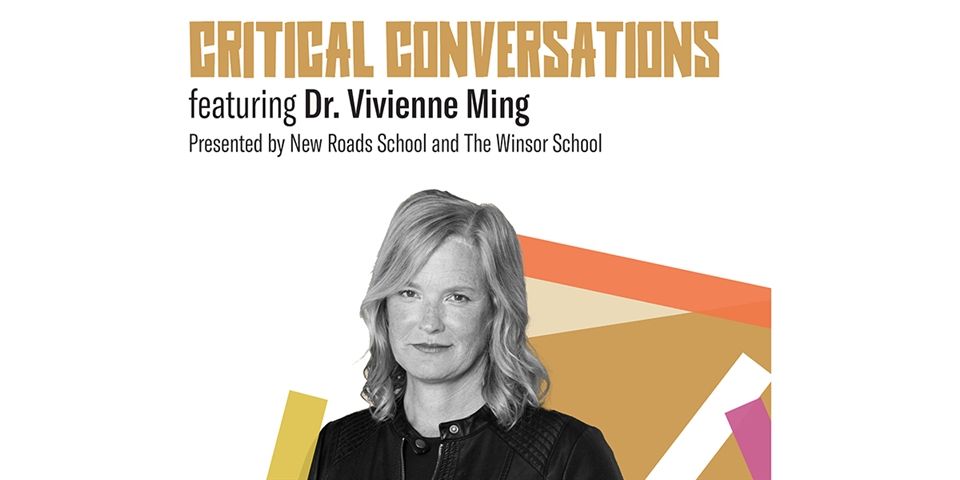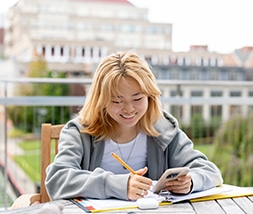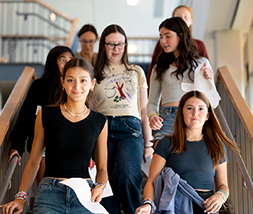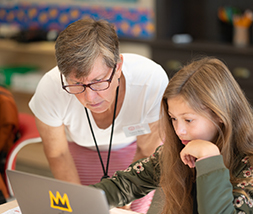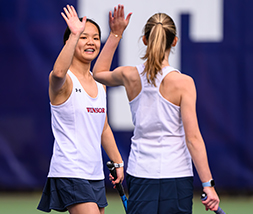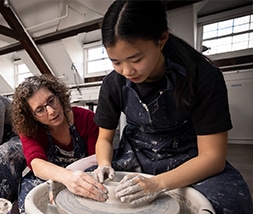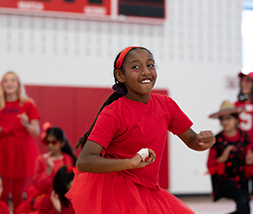Dr. Vivienne Ming: Using Artificial Intelligence to Unlock Human Potential
October 12, 2023—Dr. Vivienne Ming is happy to “get nerdy” and talk about the details of her work as a theoretical neuroscientist, a field of study that uses mathematical and computational models to understand how brains work. She’s an expert in artificial intelligence (AI) who routinely works with millions of data points as well as complex algorithms and formulas. However, those are simply the tools she uses to learn about what she’s truly interested in: people.
This month, Ming was the featured speaker in Critical Conversations, an online series created by the New Roads School in partnership with participating public, private, charter, and parochial schools. The Winsor School is a participating sponsor.
The conversation, Unpacking AI & the Future of Human Potential, was moderated by Mark Vicker-Willis, director of community engagement at New Roads School, and their Director of Student Well-Being and Human Development, Mario Johonson.
Their discussion offered a nuanced vision of how we could or should use AI today and in the years to come. Perhaps even more importantly for the audience of parents and education professionals, Ming offered a very personal and relatable story of her unlikely path to a high-achieving and satisfying career.
Ming said that her childhood was filled with everything she needed: a close-knit family, a good education, and people who expected good things for her and from her.
Ming has gone on to great success professionally and personally, but life has not taken her from point A to Point B in a neat and efficient line. The path to reaching her human potential first took her down some very dark roads, a journey that she says she wouldn’t wish on her worst enemy.
“It became clear early on that maybe I wasn’t the person they thought I was,” said Ming. “The more clear it was that I wasn’t perfect, the more I gave up.”
She says she got into college primarily because of her skill with standardized tests, but eventually flunked out and became homeless. The only math she was doing was to calculate how many coins she needed to collect in order to buy a packet of rice.
One night, she knew she had to choose whether she wanted to continue living.
“I made a decision. Maybe I would never be happy; but that didn’t have to be how I’d judge my life. I can live a life that makes other people’s lives better.”
Another five years later, and that decision led her back to college to finish her degree. This time, unencumbered by anyone’s expectations, she got perfect grades. Grad school at Carnegie Mellon was next, and in her personal life, she was in love and engaged.
From the outside, it was time to cue the Hollywood happy ending music, but in reality, Ming says she was on the precipice of another difficult transformation.
“My deep, dark secret was that I wished I was a woman,” says Ming, who was assigned male at birth and named Evan Smith by her parents.
“Gender transition wasn’t some magical thing that took my life from the streets to what it is now, but it was a big part of that journey,” said Ming. “If anyone you know is going through a transition of any kind, there’s only one thing that should matter. ‘Will you be a better person?’ That is the only way I judge myself.”
In her scientific explorations, she has another set of questions she asks herself regularly as she as the capabilities of AI expand. With every new system or algorithm or dataset, she asks herself: How can I use this?
The answers are seemingly endless. She’s used her knowledge and machine learning to take human bias out of hiring. She’s used it to help people with cochlear implants learn how to hear better, and now she’s applying it to other health issues including postpartum depression and Alzheimer’s.
“What I love is that I can see the potential to change someone else’s life.”
As she learns more about how the human brain works, she’s also trying to find ways to overcome some natural limitations.
As previous Critical Conversations speaker Dan Siegel asserted, it’s human nature to identify “in groups” and “out groups.” By being wary of those perceived as different, we also limit our ability to capitalize on the power of multiple perspectives.
“The research is pretty unequivocal. All things being equal, diverse teams outperform,” states Ming. “We need to shift that boundary of what’s an in group and what’s an out group. And we do that by engineering ‘counter stereotypical exemplars.’ You need to spend time with people that violate your stereotypes. It is the single most effective, most reliable way to change a person.”
Ming also addressed the fears that come along with AI, including that these new capabilities will eliminate jobs. Ming believes that certain jobs may be dramatically transformed, but humans are still needed to bring their unique voices and perspectives.
“Human beings have this amazing thing that modern AI doesn’t. not even the most sophisticated versions of it. We can explore the unknown…When there’s no roadmap, when there’s nothing to tell you what to do next: That is the space that is fundamentally human.”
Despite her difficult journey and the many unknowns that still lie ahead, Ming finds hope for the future in the data.
“I’ve got data on hundreds of thousands of people showing, paradoxically, that if life is a big race, it’s the people that stop and help the other racers that are most likely to win. If you live a life with the goal of being happy, you can chase it forever and never get there. But if you live a life of substance, [happiness] becomes just one of those gifts you get along the way. At least that was what I experienced.”
